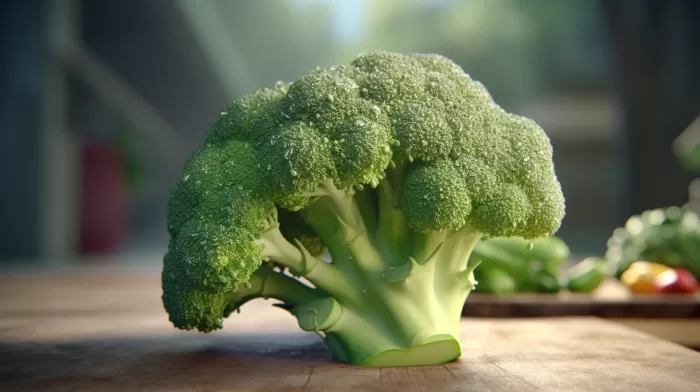A few years ago, experts at Harvard put together a list of superfoods. You might’ve seen similar lists since then, but what makes a superfood a superfood doesn’t change. One ingredient that always appears on these lists is broccoli. Its benefits stand the tests of time, particularly when it comes to disease prevention. Eating broccoli three to five times per week can decrease your chances of developing various cancers, including breast, prostate, and colon cancer.
Now, this wonder veggie has been found to fight the development of fatty liver or nonalcoholic fatty liver disease (NAFLD). This condition often leads to a malfunctioning liver and, eventually, to hepatocellular carcinoma (HCC), which is a liver cancer with an especially high mortality rate.
So if you’re a man carrying around too much weight, this disease has you in its sights. But a few lifestyle changes and some broccoli could offer protection.
Excess body fat, NAFLD, and liver cancer
“The normal story about broccoli and health is that it can protect against a number of different cancers. But nobody had looked at liver cancer,” says Elizabeth Jeffery, a University of Illinois emeritus professor of nutrition. “We decided that liver cancer needed to be studied, particularly because of the obesity epidemic in the U.S. It is already in the literature that obesity enhances the risk for liver cancer, and this is particularly true for men. They have almost a 5-fold greater risk for liver cancer if they are obese.”
At the root of the problem is the Standard American diet — also called a Westernized diet — which is high in saturated fats and added sugars. These substances are stored in the liver and can be converted to fat, leading to NAFLD. This high-fat, high-sugar diet that most Americans eat can lead to excess body fat, which can then result in an increased risk of cirrhosis and liver cancer.
“We wanted to look at this liver carcinogen in mice that were either obese or not obese,” Jeffery explains. “We did not do it using a genetic strain of obese mice, but mice that became obese the way that people do, by eating a high-fat, high-sugar diet.”
Jeffery and her team wanted to study not just broccoli’s impact on the formation and progression of cancerous tumors in the liver, but also the health of the liver and how it metabolizes lipids in response to a high-fat diet. “There is almost no information about broccoli and high-fat associated diseases,” she says.
A powerful anti-cancer, liver-protective food
The researchers found that in the mice eating the Westernized diet, the number of cancer nodules in their livers increased (as well as the size of the nodules). But when the team added broccoli to the mice’s regular diet, the number of nodules decreased. Size, however, was not affected.
“That was what we really set out to show,” Jeffery says. “But on top of that, we were looking at the liver health. There are actually two ways of getting a fatty liver: one, by eating a high-fat, high-sugar diet and the other by drinking too much alcohol. In this case, it is called non-alcoholic fatty liver because we didn’t use alcohol. And it is something that is becoming prevalent among Americans. This disease means you are no longer controlling the amount of fat that is accumulating in your liver.”
With NAFLD, lipid globules form on the liver. During the study, the researchers observed these globules in the livers of the mice on the Westernized diet.
“We found that the Westernized diet did increase fatty liver, but we saw that the broccoli protected against it. Broccoli stopped too much uptake of fat into the liver by decreasing the uptake and increasing the output of lipid from the liver,” she says.
So, does this mean continuing to follow the Standard American diet is safe as long as you add in some broccoli? While adding broccoli to your diet can make a difference, it’s essential to ditch processed foods full of hidden sugars and unhealthy saturated fat sources to boost the odds higher in your favor. Transitioning to a healthier diet, combined with a regular intake of broccoli, could make a significant difference in your liver health and cancer risk.



